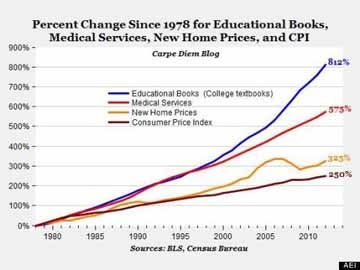The start of the new semester is right around the corner and that means you have to buy some textbooks for your classes. A student spends an average of $1,200 a year on textbooks according to the Huffington Post. URI Student Senate has compiled a list of ways to save money on textbooks, no matter where you shop for them.
Whether you shop in the campus store, shop online, or swap books with other students, buying used books can save you 25-50%. If you sell them back at the end of the semester, the savings can add up to even more. At the end of the semester, encourage your professors to use Open Educational Resources (OERs). Which are under open license that permits free use and re-purposing by others. OERs can be textbooks, full courses, lesson plans, videos, tests, software, or any other tool, material, or technique that supports access to knowledge.
Ask Your Professor: Check with your professor to see if you need to use the exact book version assigned in the syllabus. Sometimes the professor will let you use an older edition or skip the bundled version. Always be respectful of their book choice.
Campus Bookstore: Even if you have other options, make sure to see what the bookstore has to offer. Sometimes it may turn out to be the best choice. Make sure to get there early in the term because their supply of used copies usually sells out quickly.
Library: Check your campus library to see if they have a copy of your book to check out. If not, there may still be a copy on reserve—you won’t be able to take it home, but at least you can do your homework at the library.
Rental Programs: Rental websites offer the option to rent books through the mail, and many campus bookstores offer rentals, too. The average savings amounts to about 60%. You can work with the bookstore to expand their rental program or promote online rentals.
E-textbooks: Major publishers offer digital e-textbooks, which can save students 40-50%. However, their e-books usually come with restrictions on access and printing, an end-of-semester expiration date, and zero buyback value. For classes where ebooks are an option, you can work with professors to let students know that ebooks are available.
Library Reserves: Many libraries now stock copies of popular textbooks and allow students to check them out for short periods of time. You can publicize this option to students and also encourage the library to increase the number of reserve copies they stock for popular books.
Online Shopping: Shopping online gives you a greater selection, which usually means lower prices. A simple search will give you plenty of sites that sell used and new books, like Amazon.com, Half.com, CampusBooks.com, and Textbooks.com. Make sure to look for coupon codes and special sales through sites like RetailMeNot.com, and through retailers’ Facebook and Twitter feeds.
Rentals: Renting is probably your best way to save money if you don’t plan to keep the book at the end of the term. Your bookstore may offer some books for rent, and you can also rent online through sites like Chegg.com or BookRenter.com.
Book Swapping: Swap books with other students. Save money by cutting out the middleman and use Facebook and Craigslist to find other students who have the books you need. Tips for Saving Money on Textbooks E-books: If you like reading on a computer screen and don’t plan to keep the book, an e-book rental might be a good option. Make sure to do your research, though—this option doesn’t always save you money.
Be Prepared: When you go book shopping, make sure you have all of the specs on your books, including the ISBN, Title, Author, Publisher, and Edition.
*This suggestions has been adapted from Student Government Resource Center publication Making Textbooks Affordable: Student Government Toolkit”

